For many Christians, All Saints’ Day is a time to remember and pay tribute to the saints and Christian martyrs. Even for those who are not practicing Catholics, the lives of the saints can provide fascinating, enlightening, and even moving reading, whether you are a believer or merely a student of history, theology, or even anthropology.
From books penned by the saints themselves to hagiographies, encyclopedias, and in-depth studies, these 8 books provide a window into the lives of some of the most important thinkers, believers, and figures of Christian tradition throughout the centuries – and provide enthralling reading for anyone with an interest in the subject.
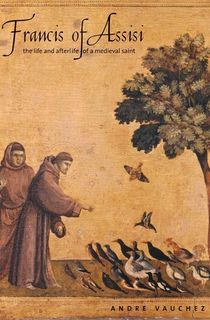
Francis of Assisi
Called “the single best book about Francis now available in English” by Commonweal, this in-depth biography of Saint Francis is a “bracing, erudite account of a mystic’s life” that “constantly reminds us – Francis was also a flesh-and-blood human being” (Booklist).
Drawing from a vast body of work, including the contemporaries of the saint as well as subsequent biographers, hagiographers, theologians, and historians, Andre Vauchez not only explores the life and beliefs of Francis of Assisi, but also places him in his historical context, to show not only how the saint came to be, but how his teachings and beliefs were shocking and transformative at the time.
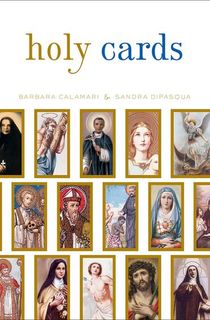
Holy Cards
Given out at significant life events, brought out during moments of spiritual reflection, contemplated during daily rituals, holy cards bearing the images of saints, martyrs, angels, and other figures from the Bible are more than merely objects of devotion – they serve as a visual encyclopedia of belief and dedication.
In this treasury of images from such cards, accompanied by explanations and biographies, dozens of images have been collected ranging from simple folk art to beautiful and complex paintings, all depicting moments of sublime beauty and, sometimes, incomparable suffering.
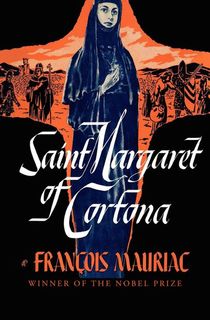
Saint Margaret of Cortona
Winner of the Nobel Prize in Literature “for the deep spiritual insight and the artistic intensity with which he has in his novels penetrated the drama of human life,” Francois Mauriac wrote this stirring biography of the patron saint of the downtrodden during the Nazi occupation of France, at a time when he and all of his countrymen could well have been considered among the downtrodden.
Mauriac found solace in the story of Saint Margaret of Cortona, a woman who had lived a reckless and wanton life before taking a vow of poverty and dedicating herself to helping the homeless, the mentally ill, the orphaned, and the falsely accused.
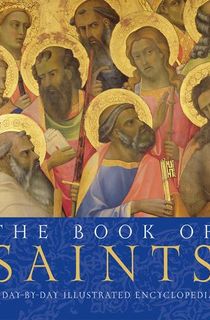
The Book of Saints
While some are more familiar to us than others, there are more than five hundred recognized Christian saints, which can make keeping track of them all feel like an absolutely insurmountable task. Fortunately, there are indispensable reference works such as this lavishly-illustrated guide by Weldon Owen, which organizes the many saints by their various feast days throughout the calendar year, and is accompanied by more than 600 illustrations, ranging from some of the earliest depictions of the saints to contemporary art and everything in-between.
As such, The Book of Saints is more than a must-have reference – it is an art book and a historical document that touches on the way saints have been depicted for centuries.
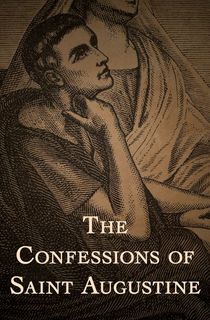
The Confessions of Saint Augustine
One of the most famous autobiographical works in history, The Confessions of Saint Augustine is also one of those rare beasts: a book about a saint, written by the saint themself. Though, of course, Augustine wasn’t a saint at the time of its writing.
Instead, he was simply a man writing about his youth in places like Carthage, Rome, and Milan, his conversion to Christianity, his beliefs both past and present, and the road that he had taken that transformed him into one of the most influential religious thinkers in history. The result has been viewed as both a masterpiece of Western literature and a cornerstone of philosophical thought – not to mention a fascinating firsthand look at the life of a saint.
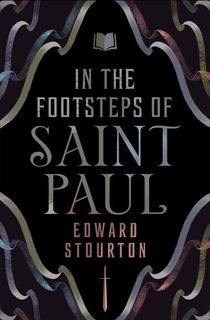
In the Footsteps of Saint Paul
There have been many books written about the saints over the years, and many approaches taken to their stories. In this unforgettable book, radio presenter and journalist Edward Stourton combines hagiography and travelogue as he follows the literal footsteps of Paul the Apostle, often considered the founder of organized Christianity, in travels from his birthplace in Tarsus to the sight of his martyrdom in Rome.
Along the way, Stourton combines reflections on the modern world with context for the experiences of Paul many centuries ago, and paints a portrait of a saint, a man, and a moment in history.
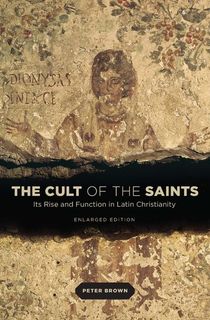
The Cult of the Saints
After the fall of the Roman Empire, the veneration of saints took on a new and sometimes startling dimension, as the corporeal remains of saints became central to many religious practices, and the possession of such relics took on importance both spiritual and political.
This “brilliantly original and highly sophisticated” study of the period (Library Journal) “demonstrates once again Brown’s genius for sharing with his readers the fruits of not only his own painstaking and meticulous scholarship but also his penetrating understanding of the evolution of Western culture as a whole” (Religious Studies).
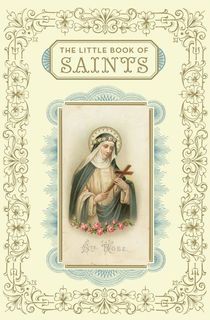
The Little Book of Saints
Combining hagiographies of more than 80 saints with reproductions of the images from 92 holy cards, this simple volume makes some of the most notable of saints approachable and comprehensible to the average reader, while also providing a devotional text for believers.
Showcasing facts about the lives of the saints alongside pieces of breathtaking spiritual art, The Little Book of Saints serves as both primer and devotional, teaching readers about the saints while also bringing their lives closer to our own through words and images – all in an elegant keepsake that can easily be kept close to hand.
